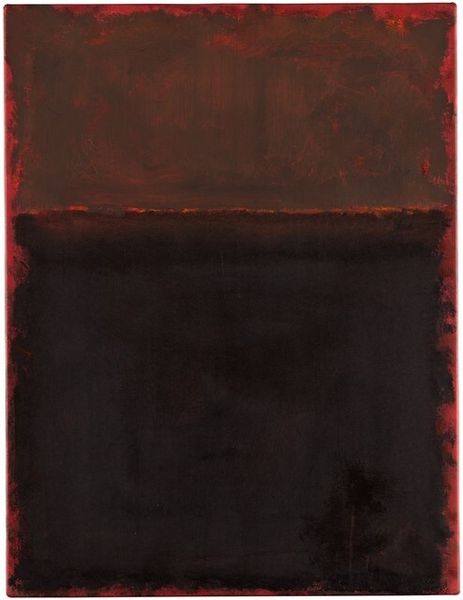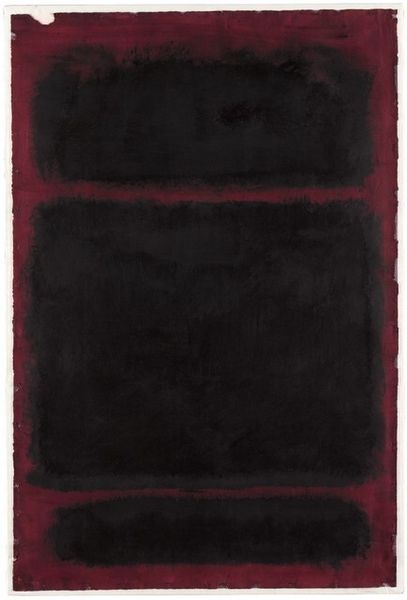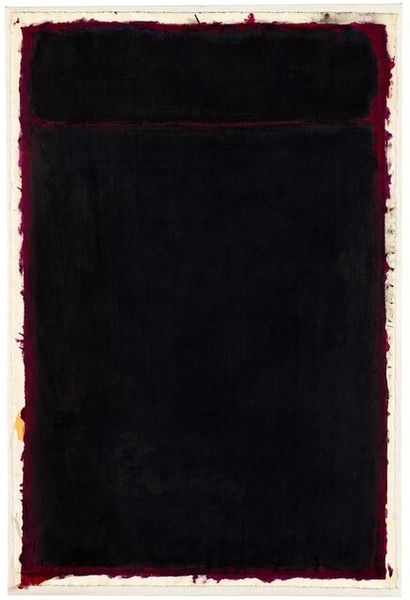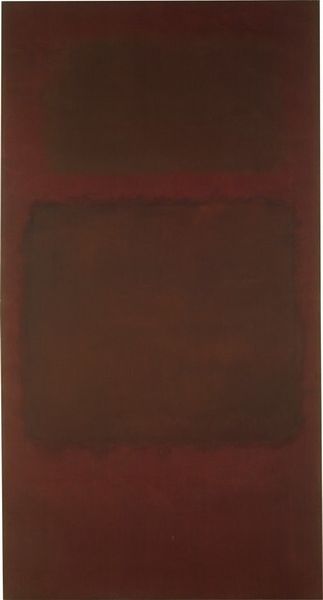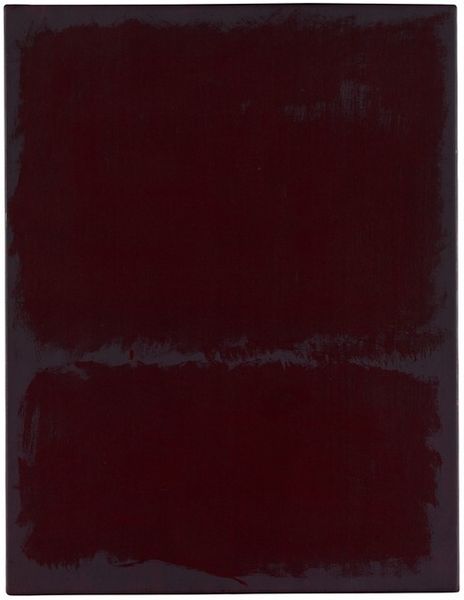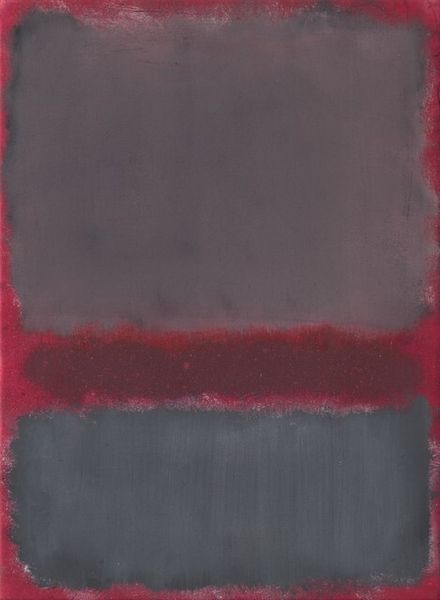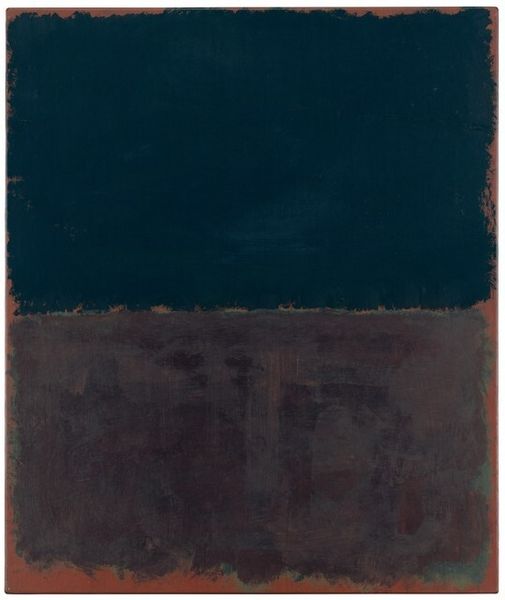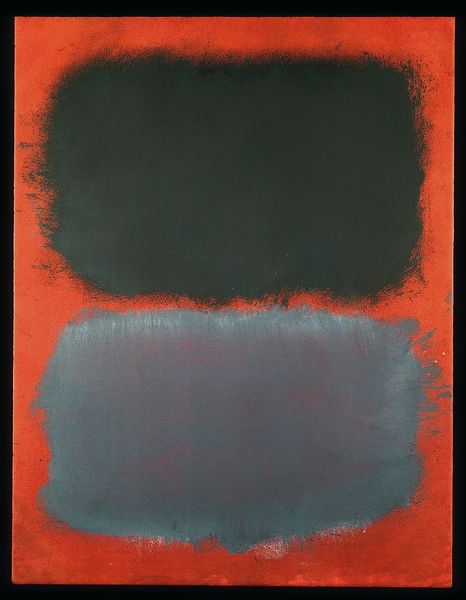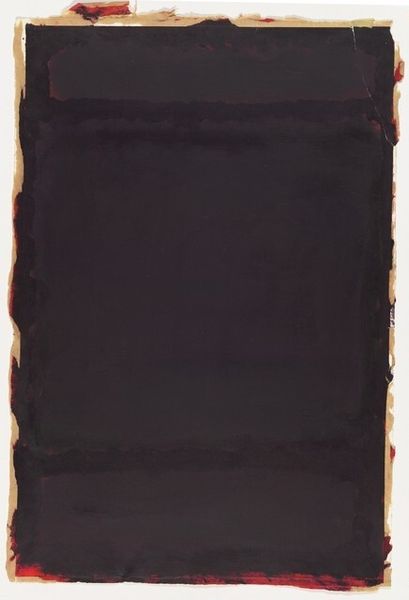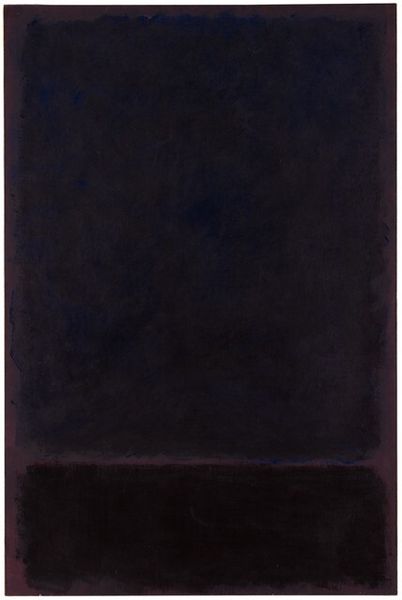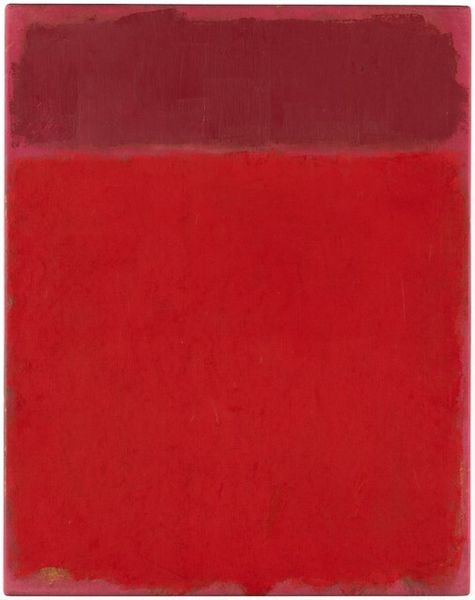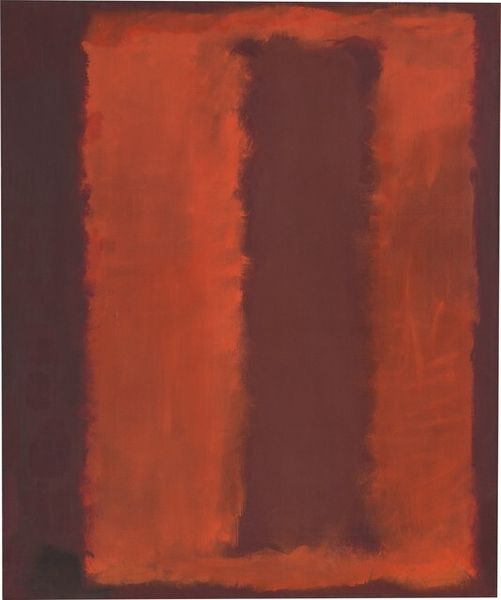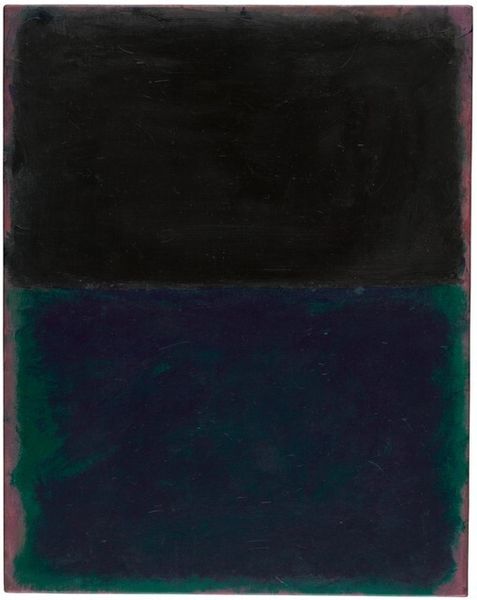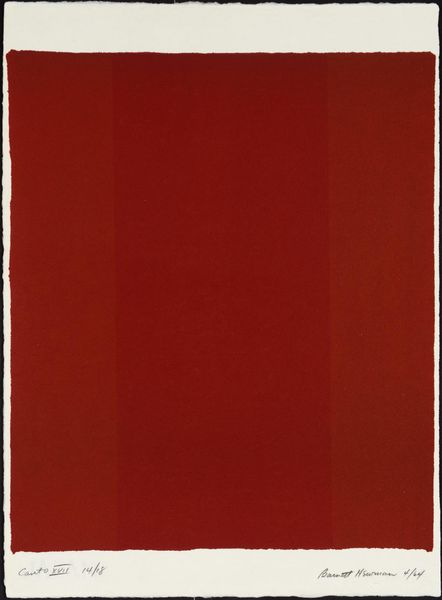
painting, oil-paint
#
abstract-expressionism
#
abstract expressionism
#
abstract painting
#
painting
#
oil-paint
#
abstraction
#
monochrome
Dimensions: sheet: 151.92 × 107.63 cm (59 13/16 × 42 3/8 in.)
Copyright: National Gallery of Art: CC0 1.0
Curator: Here we have an untitled oil on canvas piece by Mark Rothko, dating back to 1968, a period of immense personal turmoil for the artist. Editor: It's immediately striking. The darkness feels oppressive, yet there's a strange warmth emanating from the red, almost like embers glowing faintly beneath ashes. Curator: The somber palette is typical of Rothko’s later work, reflecting his increasing anxieties. The compositional structure, while simple, echoes a profound struggle—a layering of the psychological weight pressing on identity. Editor: Black and red… classically, a colour of rage but here the composition seems meditative, almost devotional, resembling some kind of dark, gothic altarpiece. I see layers of human emotion presented via pure colour. Does that read to you as an intentional subversion of symbolic form? Curator: Subversion, perhaps, but more acutely a stripping bare of emotional representation. Rothko often spoke of conveying basic human emotions—tragedy, ecstasy, doom—through abstract means. In the context of the late 60s, we might view it as speaking to existential anxieties felt amidst the Vietnam war. What readings might exist about these colours as being metaphors? Editor: Colour metaphors? Red for primal, earthy things – love, blood, fire – trying to push through the overwhelming weight of the black void… Perhaps representing the self battling forces that seek to eradicate it. Curator: Considering the personal and political climates surrounding Rothko, that's definitely a poignant read. This period of his career saw him wrestle deeply with themes of mortality, selfhood and the meaning of artistic expression. His canvases often became arenas for psychological grappling. Editor: There is also something quite primordial about it: Rothko takes these essential aspects, refines them down, and we confront feelings without external narrative interference. I find the effect deeply moving, Curator: I think you are absolutely right: It is moving precisely because it uses its formal reductivism in relation to existential and contemporary struggles. Thanks for sharing your insights. Editor: Thank you; looking at it through a modern cultural framework, you shed light onto many dimensions within this Rothko's painting.
Comments
No comments
Be the first to comment and join the conversation on the ultimate creative platform.
